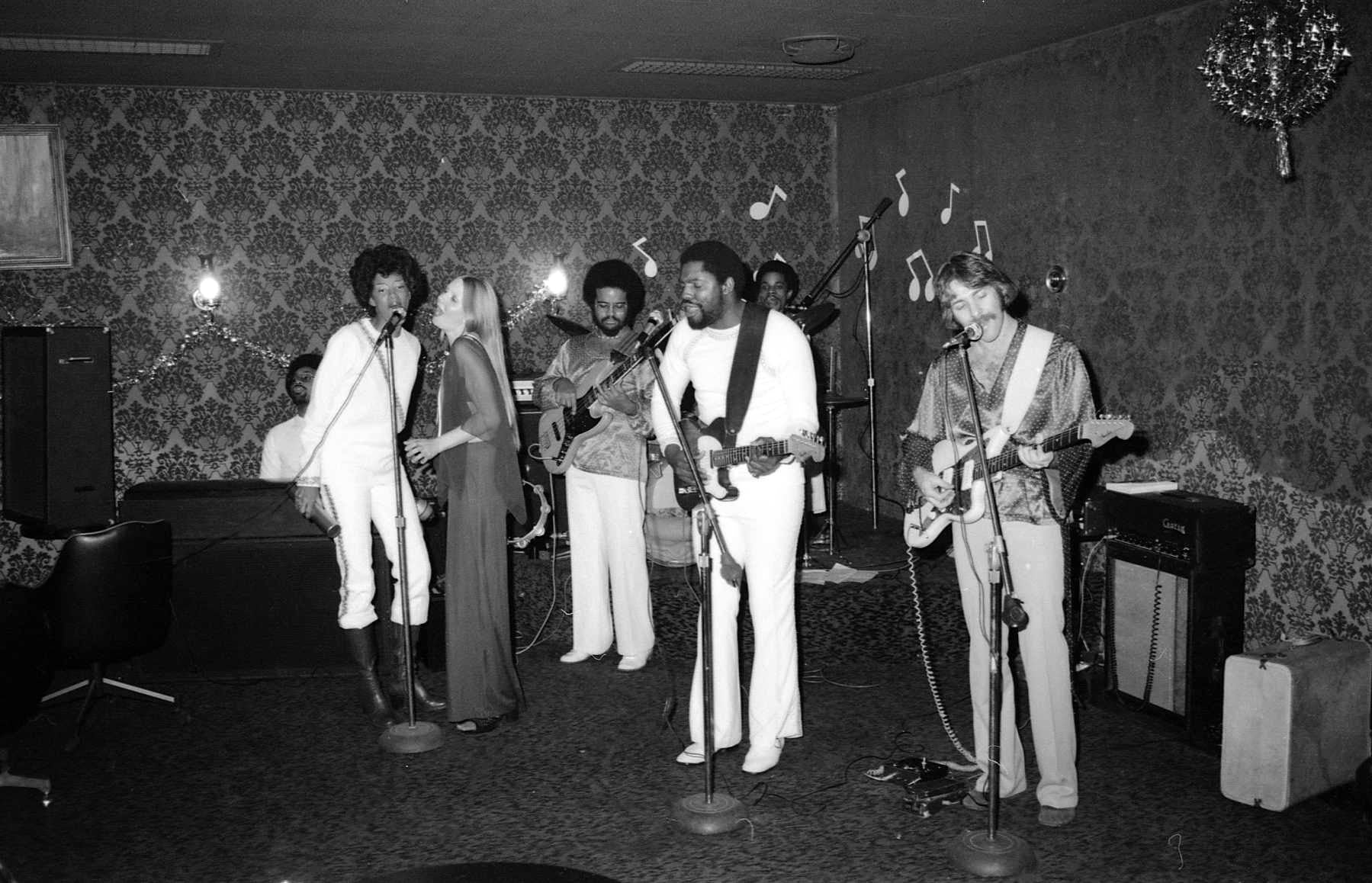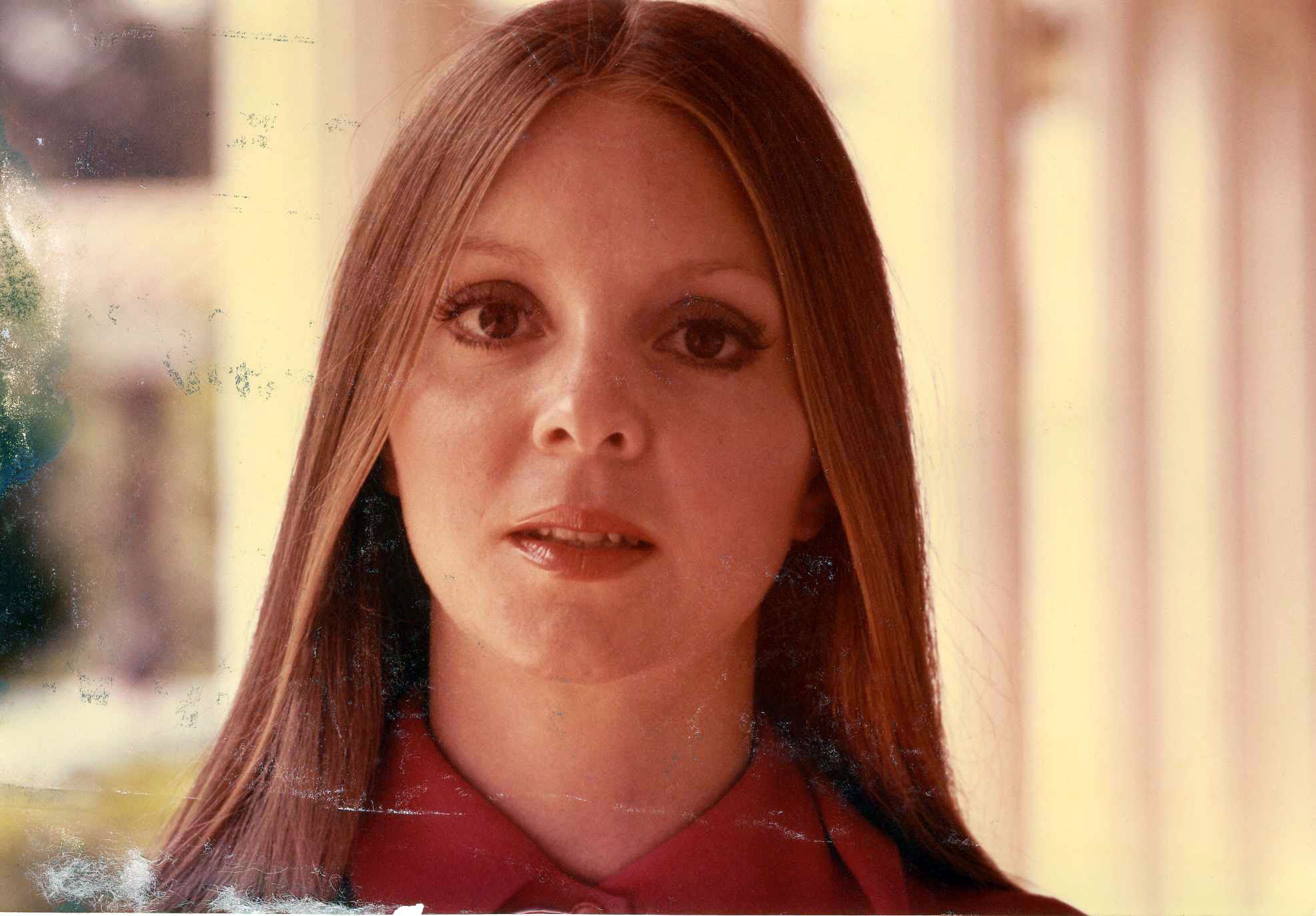Ahead of our reissue of the brilliant self-titled, privately pressed 'Spaceark' album, we spoke exclusively to Peter Silberg, founder member of the California-based group about the record and the surrounding history.
Who were SpaceArk?
The founding members were myself, Peter Alan Silberg and Troy B. Raglin. Secondary members were Bryan “Skip” Reed, Reggie Austin, and Russell Greene.
How and when did you form?
Troy and myself formed a songwriting partnership and subsequently interviewed musicians to form a group to play our compositions and participate in songwriting too; with the goal of obtaining a recording contract with a major label and to play live venues. The songwriting partnership started late in 1973 and the group came together mid-1974.
Where did you get the band name from?
The group name was proposed by Troy and as none of the group members proposed a better name, we all agreed on it.

What was the music scene in southern California like at the time, and who were you listening to that you respected?
The scene for live music was pretty limited for original music. Club gigs were either for bands playing radio hits of the day (cover bands), or if playing original music in clubs then you had to agree either to pay the club to play or guarantee a set amount of ticket sales, which made it very difficult for a new group to build a following. We solved the problem by playing established artists’ music and inserted our own songs in the playlist to gauge audience reaction. Those compositions that worked in getting the audience up to dance were kept, other original compositions were either modified or dropped.
Most of the group members liked the 60's R&B groups and artists such as Wilson Pickett, Otis Redding, Sam & Dave, James Brown, Sly Stone and Motown acts such as Marvin Gaye, The Four Tops, The Temptations and Stevie Wonder. Of course The Beatles, Stones, Cream and Jimi Hendrix were influences on my end.
What did you think of the disco scene that was emerging?
None of the group members were into disco as we felt it was very repetitive and too formulaic rhythmically and the song topics and composition styles were simplistic. But that didn’t stop us from appreciating groups like The O'Jays, Harold Melvin & The Bluenotes, and Earth, Wind & Fire. Nevertheless we played numerous disco record hits to win over audiences even though it was “painful” artistically at times. However, the longer the group was together the less we performed other artists’ material.
You cut your teeth on the armed forces circuit in southern California - tell us what it was like to play on that scene?
Unlike playing regular club gigs in Los Angeles, the armed forces club audiences were comprised of people from all over the US so the audience preferences for musical styles were broader. And being fuelled by cheap, unrestricted beer consumption on base, the audiences were ready to party big time. They took to SpaceArk in a big way as we could play both rock and R&B style soul and we were interracial so we offered something for everyone. We were the one group out of many that played this circuit that were offered steady repeat bookings for years.
Your debut album was self-funded and recorded live - did you feel the pressure to capture the energy of your live performances?
Recording together as a group wasn’t much different to playing live, with the exception of sometimes having to restart if a mistake was made. Rhythm tracks for the entire first album were completed in 4-hours. Overdubs for solos and vocal tracks were done in another 4-hours, and a third session for mixing took another 4-hours – 12-hours total to do the entire album. We were well rehearsed from live performance and we were tight.
Where did you record it?
The first album was recorded at the legendary 'Sunset Sound Studios' in Hollywood on 16-track analog tape.
What was the influence of Troy Raglin during the recording sessions?
Troy was the producer and director of the sessions. None of the band members had recorded in a professional studio previously. Troy had previous experience with Capital Records in San Francisco a few years earlier and had worked in studio sessions with Marshall Boss McQueen, a soul songwriter and performer in Los Angeles. I believe they had been friends for a number of years in independent recording ventures.
Who handled the song-writing on the debut album?
Songs for the first album were mostly composed by myself and Troy, but all band members’ compositions were included.
How did the record perform upon its initial release?
We basically used the record as a promotional tool in trying to get major label interest, but we also had a small group of folks marketing the album independently, and this effort was directed by Troy. The rest of the group were musicians, and not businessmen.
What did you do next?
The record was well received and played on some major radio stations locally, but didn’t result in major label interest, mostly due to the perception that we weren’t disco and we weren’t rock, but rather something unique sonically and as an untested musical concept the labels weren’t sure we could sell records. Keep in mind there was no independent record label scene in 1975 so we just soldiered on playing live and writing more songs. We believed in our musical vision so there was no other choice but to continue in the hopes of success.
After the first album did not result in major label involvement bassist Reggie Austin left the group, and was replaced by Mahlon “Malo” Hauk, who also left a year later, when our final bassist Kenneth Chavis joined and recorded our second album.
How do you feel about your second album ‘Spaceark Is’?
I've always had mixed feelings about the album. I think some of the songs are excellent, but the recording was not done as a group together and relied more on overdub sessions. This was a decision decided unilaterally by Troy which I objected to, but to no avail.
What about the lost album that featured ‘Don’t Stop’?
The “lost” album rhythm tracks were rehearsed and recorded live as a group, and included 'Don’t Stop', 'Sexy Lady', 'Big Locomotive on the Tracks of Love' (composed by Marshall McQueen), 'Beautiful Machine', a favourite live composition called 'Don’t Wreck Our Dreams', another live composition called 'Radio Willie', which I was convinced would be a hit for us, a symphonic composition called Seagulls, and another live favourite, 'Freeway Flyer', and finally another live crowd favourite called 'Goin' Crazy'. Tracks for these compositions were recorded at Ocean Way Studios, first in Santa Monica, and then subsequent work was done at the second Ocean Way Studios in Hermosa Beach. The only two compositions that were completed were 'Big Locomotive...' and 'Don’t Stop' – both were released as singles on the Colorwold label with lead vocals by guest artists. Charles Overton sang on 'Big Locomotive...' and sometimes joined SpaceArk in live performances on percussion, and Dolores Hardy was featured singing on 'Don’t Stop'. She also joined the group for live performances the last year or so. The only other track from these sessions that survives in professionally recorded demo format is Beautiful Machine.
This group of songs which the group recorded was unfortunately set aside in favour of Troy deciding we needed more pop orientated songs which turned out to be the 'SpaceArk Is' album. There were lot of hard feelings between Troy, myself and keyboardist Russell Greene who subsequently left the group in protest.
 Photo: Dolly Way who features on ‘Don’ Stop’
Photo: Dolly Way who features on ‘Don’ Stop’
What happened to the group after your final releases?
After completing the second album, there were another couple of years of performing live but as time progressed it became apparent to me that Troy was much more focused on signing other artists and getting them to finance their own recordings, with him playing the role of producer and label owner. SpaceArk was used as a springboard for his efforts and when it was apparent we didn’t help him make it to the big time we were no longer his focus. He figured he would do it managing other artists. I could no longer justify continuing being his partner as my focus was SpaceArk, so I ended up resigning, and the group ceased to exist in 1979. I am aware Troy put together another short lived version of the group with all new members playing only his compositions, but it went nowhere. To the best of my knowledge Troy started his own label Fire Mountain in 1980 and released some singles, but never had any real success.
How do you feel about the new wave of fans who’ve discovered your work?
I am thrilled and thankful that the efforts of the group members are appreciated and there are still new fans discovering SpaceArk all these years later. The fact that our music survives keeps me smiling when I think that somewhere around the world we are still being played and enjoyed.
As Ringo always says, “peace and love”.
The album is available on Mr Bongo, on vinyl LP, CD and digital formats.
